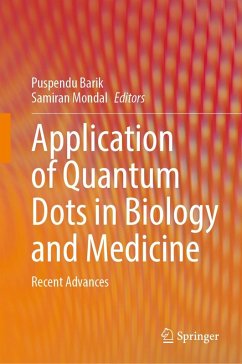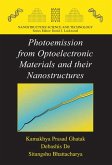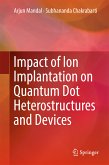This book illustrates various applications of quantum dots (QDs) in the biomedical field and future perspectives. It first introduces the synthesis procedures and fundamental properties of QDs. In addition, the optical detection techniques and toxicologic reviews of QDs are presented. A focus of the book is also on the applications of QDs in cancer therapy, drug delivery, bio-sensing, and targeted molecular therapy. This book is exciting and valuable to a wide variety of readership communities (students, early-stage researchers, and scientists) in the various fields of biology and medicine.
Dieser Download kann aus rechtlichen Gründen nur mit Rechnungsadresse in A, B, BG, CY, CZ, D, DK, EW, E, FIN, F, GR, HR, H, IRL, I, LT, L, LR, M, NL, PL, P, R, S, SLO, SK ausgeliefert werden.









